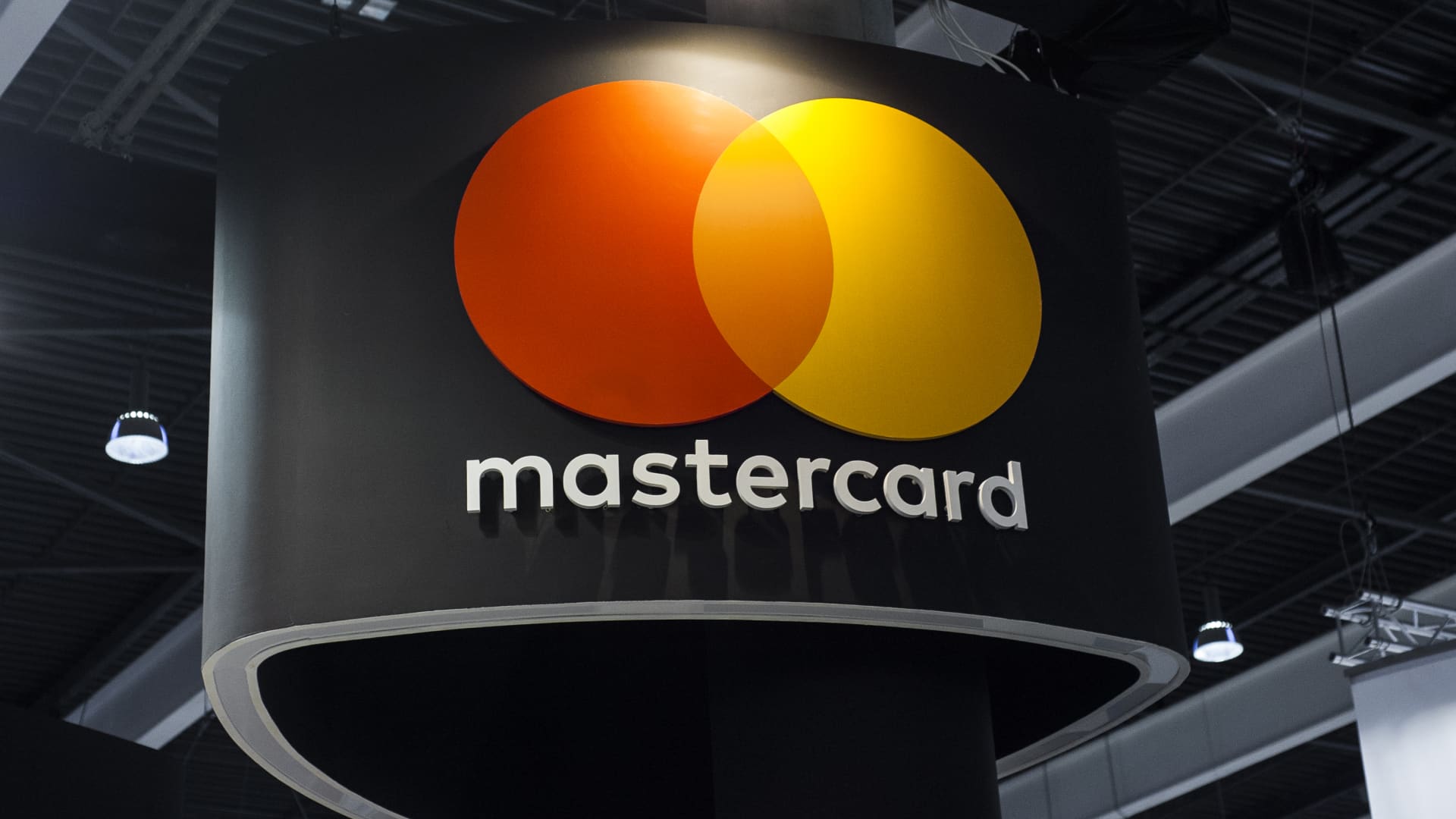BARCELONA, SPAIN – MARCH 01: A view of the MasterCard company logo on their stand during the Mobile World Congress on March 1, 2017 in Barcelona, Spain. (Photo by Joan Cros Garcia/Corbis via Getty Images)
Joan Cros Garcia – Corbis | Corbis News | Getty Images
Payments giant Mastercard says it has built its own proprietary generative artificial intelligence model to help thousands of banks in its network detect and root out fraudulent transactions.
The company told CNBC exclusively that its new advanced AI model, Decision Intelligence Pro, will allow banks to better assess suspicious transactions on its network in real-time and determine whether they’re legitimate or not.
Ajay Bhalla, Mastercard’s president of cyber and intelligence business unit, told CNBC that the new AI solution is a proprietary recurrent neural network — a core part of generative AI — from Mastercard built from scratch by the company’s cybersecurity and anti-fraud teams.
“We are using the transformer models which basically help get the power of generative AI,” Bhalla told CNBC in an exclusive interview earlier this week. “It’s all built in house we’ve got all kinds of data from the ecosystem. Because of the very nature of the business we are in, we see all the transaction data which comes to us from the ecosystem.”
In some cases, Mastercard is relying on open source “whenever needed,” but the “majority” of the technology is created in house, Bhalla added.
Mastercard’s proprietary algorithm is trained on data from the roughly 125 billion transactions that go through the company’s card network annually.
The data helps the AI understand relationships between merchants — rather than words, as is the focus with large language models such as OpenAI’s GPT-4 and Google’s Gemini — and predict where fraudulent transactions are taking place, Mastercard said.
Heat-sensing fraud patterns
Instead of textual inputs, Mastercard’s algorithm uses the history of a cardholder’s merchant visit as the prompt to determine whether the business involved in a transaction is a place the customer would likely go.
The algorithm then generates pathways through Mastercard’s network — kind of a like heat-sensing radar — to find the answer in the form of a score.
A higher score would be one that follows the pattern of what’s the usual kind of behavior expected from the cardholder, and a lower score is out of that pattern.
This process all happens in just 50 milliseconds, according to Mastercard.
Bhalla said the new transaction decisioning technology from Mastercard can help financial institutions improve their fraud detection rates by 20%, on average. In some cases, though, the model has led to improvements in fraud detection rates of as much as 300%, Bhalla added.
Mastercard says it’s invested more than $7 billion in cybersecurity and AI technologies over the last five years.
That includes a number of acquisitions, including its March 2023 deal to buy Swedish cybersecurity firm Baffin Bay Networks.
Competitor Visa has made investments of its own into AI, including a $100 million venture fund for generative AI startups established by the company in October 2023.
While it’s still early, Mastercard anticipates its algorithm will enable banks to save as much as 20%, by eliminating much of the costs they’d typically devote to assessing illegitimate transactions.
The true potential of Mastercard’s technology, according to Bhalla, is in the ability to identify fraudulent patterns and trends to predict future types of fraud that are not currently known within the payments ecosystem.
“The beauty of Mastercard’s ecosystem is we see data from all our customers globally from these transactions,” he said. “What that does its it helps us actually see fraud and patterns across the ecosystem globally.”
Several companies in the payments and digital banking space have said recently that AI will lead to
major changes in their products. PayPal last week week announced new AI-based products as well as a one-click checkout feature.
WATCH: Mastercard unveils Shopping Muse, an AI-powered personal retail assistant
Sumber: www.cnbc.com






